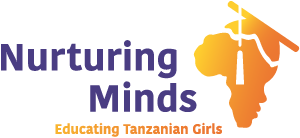Preparing for Success in Secondary School: SEGA’s English Fluency Program
SEGA’s second English Fluency Program brought more than 20 volunteers to SEGA for two weeks to help students gain comfort speaking English. By Hannah Wilson
Imagine you finish a school year, and after your summer break, you don’t just switch teachers or classrooms – you switch languages. That is the situation of most Tanzanian students advancing to secondary school. In the Tanzanian system, primary school is taught in Swahili, but secondary school is taught in English. Success hinges on English comprehension and expression – even though it is typically a child’s third language; studied under a non-native speaker as just one of nearly a dozen subjects; in primary school classes with 50 or 60 other students; often under threat of corporal punishment for mistakes. It’s easy to see how learning English can seem like an insurmountable challenge for a vulnerable student.
SEGA’s English Fluency Program helps incoming SEGA students bridge that gap. This past fall, more than 20 volunteers, including myself, traveled to SEGA from all across America to participate in the school’s second English Fluency Program. Our aim was not to teach every rule of grammar, or every vocabulary word. SEGA has excellent faculty and staff teaching those fundamentals year-round! Instead, the primary goal for the English Fluency Program was for students to become confident and excited about speaking English in their daily lives.
When the 22 volunteers arrived, we were grouped into 2-3 person teaching pods, and were assigned a group of 6 or 7 Pre-Form-One students: our own little team for the next two weeks. These small groups provided an intimate setting for one-on-one conversation, so we could really connect with even the quieter students. We worked in our small groups every morning, forming larger groups in the afternoons for activities like dance, music, and games.
We worked on pronunciation, phrasing, conversation, expression – and yes, some vocabulary and grammar. We read folk tales and discussed the lessons each story conveyed. We learned about famous women in history, and how they became leaders to their communities and beyond. We sang, danced, played, read, listened, presented, debated, and designed. We took an amazing trip to Mikumi National Park, where students and volunteers witnessed together the majesty of Tanzania’s lands and animals. (Some of the girls even translated for our Swahili-speaking safari guide!) We hiked in the Uluguru mountains and swam in a waterfall together. Above all, we made sure to have fun getting to know each other.
I believe that is the most important part of the English Fluency Program – connection. This program is not a one-way street, but a true cultural exchange. Volunteers shared our stories, our values, our vocabulary, our inspirations and our cultural landmarks. And in return, the girls spilled forth a wealth of their own experiences, sharing their culture in the same ways and improving their skills through immersion. They weren’t just improving their English –ideally, they were also learning how meaningful, rewarding, and fun the study can be. I am beyond grateful for the opportunity to get to know these girls, and I can only hope that I have made a fraction of the positive impact on their lives that they have made on mine.
Interested in hearing more about the English Fluency Program, or other volunteer opportunities? Email us at info@nurturingmindsinafrica.org



